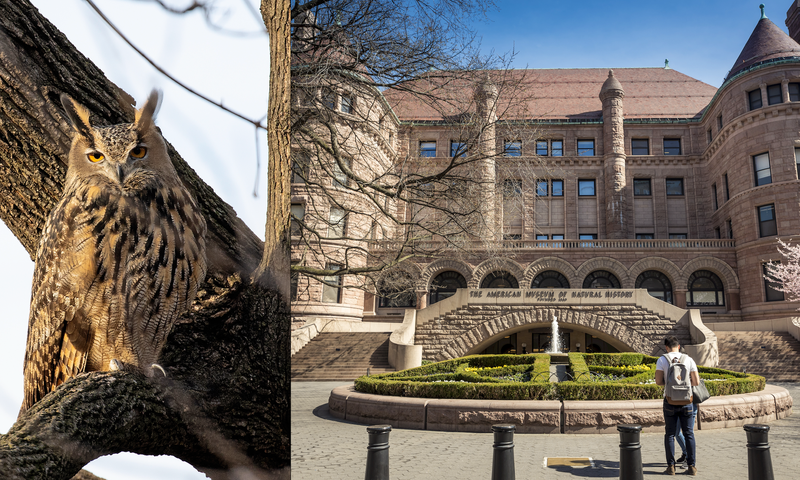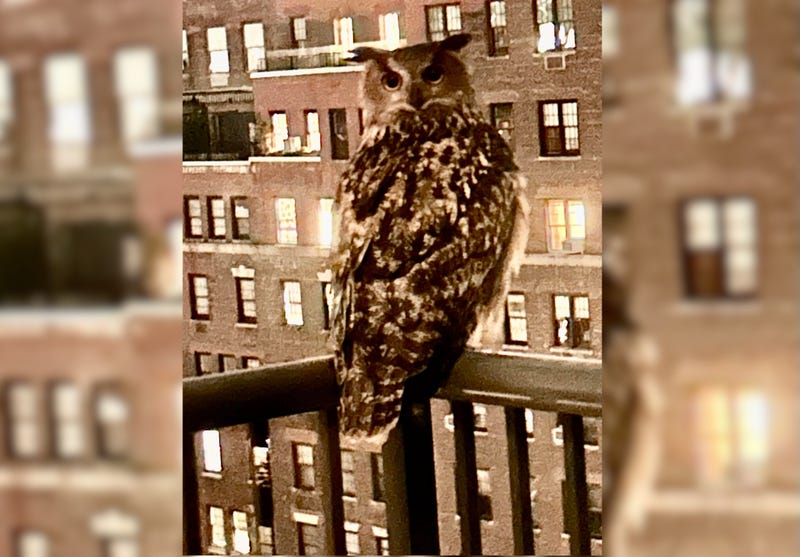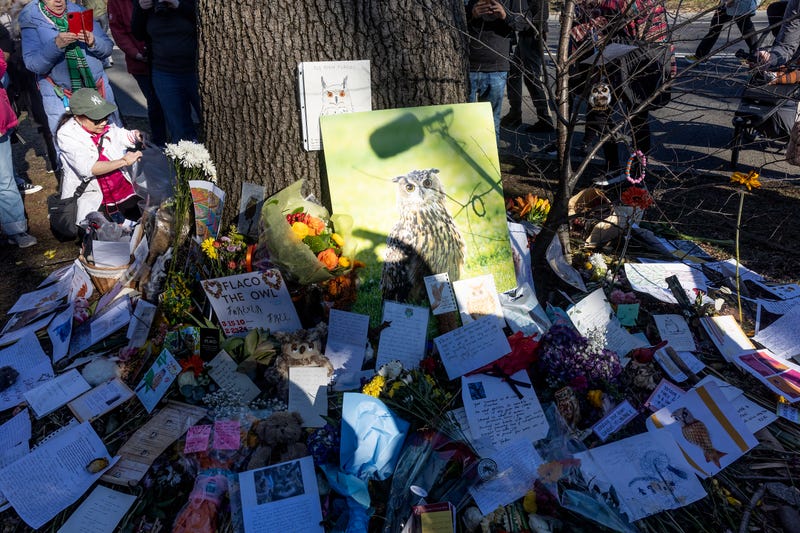
NEW YORK (1010 WINS/WCBS 880) – The remains of Flaco the Owl have been transferred to the American Museum of Natural History, where they will be a part of the museum's scientific collection, officials said Tuesday.
Wings and tissue samples from the famed Eurasian eagle owl were sent to the Upper West Side museum following a necropsy at the Bronx Zoo, according to the Wildlife Conservation Society, which manages the Bronx Zoo, as well as the Central Park Zoo, where Flaco lived before he was released by a vandal in February 2023 and ultimately became a New York City legend.
Flaco's remains will become part of the museum's "frozen tissue specimen collection," officials said, adding that they "will not be on public view."
"These collections are used extensively by scientists and also by artists who develop images for educational materials, including birding field guides," the WCS said in its statement.

The remainder of Flaco's remains have been archived at the Bronx Zoo's Wildlife Health Center, according to officials.
Flaco spent most of his life at the Central Park Zoo, arriving there as a fledgling in the spring of 2010.
Flaco's life as a zoo owl changed on the evening of Feb. 2, 2023, when an unknown vandal cut the steel mesh of his enclosure and set him free.

While many doubted a bird raised in captivity could live very long in the wild, Flaco defied the odds for 13 months, soaring above Manhattan and feeding on a diet of rats—all the while stealing the hearts of New Yorkers who found inspiration in his long-shot survival.
He died after flying into a building on the Upper West Side on Feb. 23. A necropsy determined several factors contributed to his death, including severe pigeon herpesvirus, exposure to multiple rodenticides, and traumatic injuries from hitting the building and falling to the sidewalk below.
In March, hundreds of Flaco's admirers turned out in Central Park for a memorial at his "favorite oak" near East Drive and East 102nd Street. There's currently a petition to erect a statue to him in the park.
